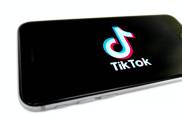iRobot in Financial Trouble: Amazon Cuts Acquisition Price

iRobot in Financial Trouble: Amazon Cuts Acquisition Price
In a move to address the financial struggles faced by robotic vacuum-cleaner maker iRobot, Amazon and iRobot have agreed to modify the terms of their acquisition deal. The modification includes a 15% reduction in Amazon’s acquisition price, which will help offset a new $200 million loan required to support iRobot’s ongoing operations. This development comes nearly a year after Amazon announced its plans to acquire iRobot for $1.7 billion, as part of its strategy to expand into the consumer robotics market.
iRobot has experienced a decline in revenue and shipments, indicating the challenges the company has been facing. In 2022, the company’s revenue fell by 24% to $1.2 billion, resulting in a net loss of $286 million. This is a significant contrast to the profits of $30 million in 2021 and $147 million in 2020. Moreover, the total shipments of iRobot products decreased by 25% to less than 4.2 million units in 2022.
To cope with these financial difficulties, iRobot has resorted to cost-cutting measures. The company has undergone two rounds of layoffs, resulting in a reduction of 216 jobs, which represents about 16% of its workforce. As of April of this year, iRobot’s total employee count stands at 1,156 individuals.
The challenges faced by iRobot are further compounded by the effects of the COVID-19 pandemic and a shift in orders. In the first quarter of this year, iRobot reported a 45% decline in revenue, partly attributed to a scheduled shift of certain orders with a customer. These orders were originally scheduled for the first quarter of 2022 but were rescheduled to ship in the second quarter of 2023 for an annual promotional event.
Although the customer was not specifically identified, it is worth noting that Roomba and its competitors were heavily promoted during Amazon Prime Day, which occurred earlier this month. This event could have had a significant impact on iRobot’s revenue and order fulfillment.
Under the revised terms of the acquisition deal between Amazon and iRobot, the all-cash acquisition price has been reduced to $51.75 per share for iRobot. This is a decrease from the initial $61 per share that was announced at the time of the deal. The reduction in cash outlay will be offset by an increase in iRobot’s debt, resulting from the company’s decision to secure new financing.
The CEO of iRobot, Colin Angle, expressed confidence in the new financing arrangement, stating that it provides sufficient support for the company’s operations in a highly competitive environment. The new financing is intended to address iRobot’s liquidity needs and also to pay off its existing debt. Angle emphasized that the terms of the financing represent the best option available to support iRobot’s ongoing operations.
The acquisition deal between Amazon and iRobot has attracted the attention of antitrust authorities in the United States and Europe. Both companies have assured regulators that they are cooperating fully with the review process. In a joint statement, Amazon and iRobot stated that they are working cooperatively with the relevant regulators, demonstrating their commitment to compliance with antitrust regulations.
In summary, the modification of the acquisition deal between Amazon and iRobot highlights the financial difficulties faced by iRobot and the need for additional funding to support the company’s ongoing operations. While iRobot’s revenue and shipments have declined, the company is taking proactive measures to address its financial challenges. The revised terms of the deal, including a reduction in acquisition price and increased debt, aim to provide iRobot with the necessary resources to navigate the highly competitive consumer robotics market.
Despite the challenges, iRobot remains a significant player in the industry, with its Roomba brand being a household name in robotic vacuum cleaners. The cooperation between Amazon and iRobot with antitrust authorities demonstrates their commitment to a transparent and compliant acquisition process. As the market continues to evolve, it will be interesting to see how iRobot adapts and innovates to maintain its position as a leading player in the robotic vacuum cleaner market.
First reported on GeekWire
Frequently Asked Questions
Q. What is the recent development between Amazon and iRobot in their acquisition deal?
The recent development in the acquisition deal between Amazon and iRobot involves a modification of the original terms. The modification includes a 15% reduction in Amazon’s acquisition price for iRobot, which has been agreed upon to help offset a new $200 million loan required to support iRobot’s ongoing operations. This decision comes nearly a year after Amazon initially announced its plans to acquire iRobot for $1.7 billion, as part of its strategy to expand into the consumer robotics market.
Q. What financial challenges is iRobot facing, and how has it affected the company’s performance?
iRobot has faced financial struggles, as evident from its decline in revenue and shipments. In 2022, the company’s revenue fell by 24% to $1.2 billion, resulting in a net loss of $286 million. This sharp contrast to the profits of $30 million in 2021 and $147 million in 2020 has been a significant concern for the company. Additionally, the total shipments of iRobot products decreased by 25% to less than 4.2 million units in 2022.
Q. What measures has iRobot taken to cope with its financial difficulties?
To address the financial challenges, iRobot has taken proactive measures, including cost-cutting measures. The company underwent two rounds of layoffs, resulting in a reduction of 216 jobs, which represents about 16% of its workforce. Additionally, iRobot has secured new financing to address liquidity needs and pay off existing debt, demonstrating its commitment to navigating the highly competitive consumer robotics market.
Q. How is the revised acquisition deal affecting iRobot’s stock price and market perception?
The news of the modified acquisition terms and iRobot’s financial challenges has impacted the company’s stock price. Shares of iRobot fell by 12% in trading following the announcement. This decline reflects the concerns of investors about the company’s financial performance and the challenges it faces in the competitive robotic vacuum-cleaner market.
Q. What is the status of the acquisition deal’s review by antitrust authorities?
The acquisition deal between Amazon and iRobot has drawn the attention of antitrust authorities in the United States and Europe. Both companies have assured regulators of their full cooperation in the review process to ensure compliance with antitrust regulations. The joint statement by Amazon and iRobot demonstrates their commitment to transparency and compliance in the acquisition process, despite facing challenges in the market.
Q. How is iRobot adapting to the changing market landscape and competition?
iRobot’s adaptation to the changing market landscape and competition is evident through its decision to develop a bioplastic that decomposes rapidly. This innovation addresses plastic pollution concerns and offers a sustainable alternative to petroleum-based plastics. By collaborating with tech giants like Microsoft and Meta, iRobot aims to secure additional funding and innovate in the field of green materials for electronics, which aligns with the growing demand for eco-friendly solutions in the consumer robotics market. As the market evolves, iRobot continues to take proactive measures to maintain its position as a leading player in the robotic vacuum cleaner industry and create long-term fixes to the plastic pollution crisis.
Featured Image Credit: Unsplash



